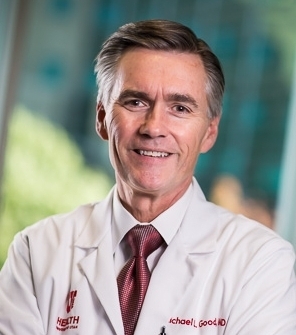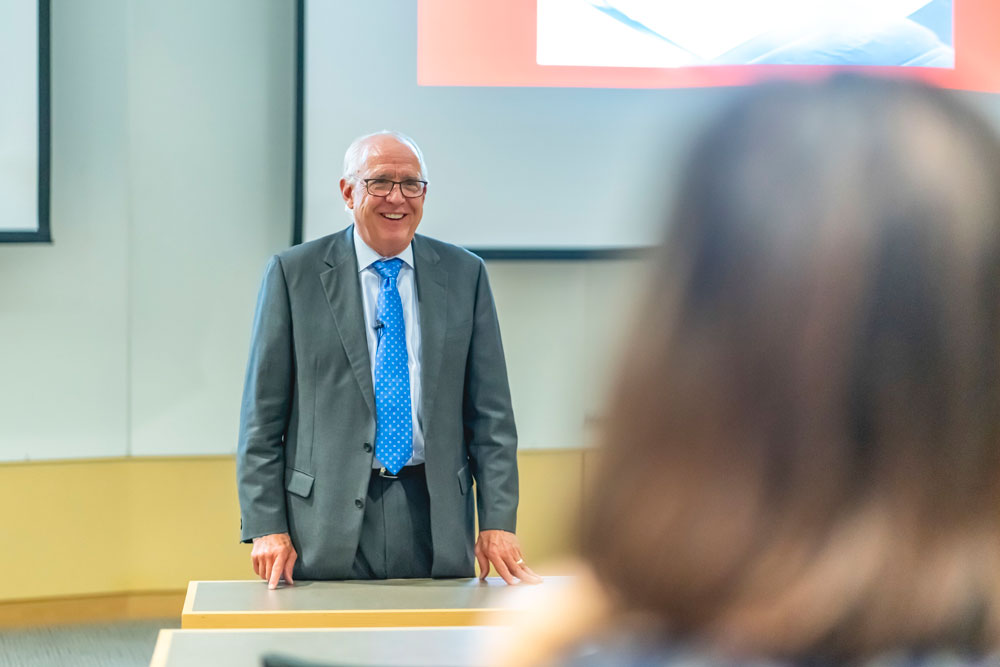Voices of U of U Health
AAMC's Kirch on Challenges Facing Academic Medicine
Darrell Kirch, MD, has a unique perspective on medical education. During a 13-year stretch, starting in 2006, he visited all 154 medical schools in the United States, while serving as president and CEO of the Association of American Medical Colleges (AAMC). The association represents the nation’s medical schools, their teaching hospitals, and health systems. Last summer Dr. Kirch stepped down from the top post to become AAMC’s president emeritus.
Kirch shared his well-traveled perspective while at University of Utah Health to deliver a lecture at the School of Medicine titled, “The Fate of Academic Health Centers in a Chaotic 21st Century.” The Department of Internal Medicine invited Kirch to give the SixteenthAnnual Dr. and Mrs. Maxwell M. Wintrobe Endowed Lecture. The yearly event was established to honor the late Dr. Wintrobe, a professor who joined our faculty in 1943 and became the University of Utah’s first Chair of Medicine. Just two years later, the National Institutes of Health (NIH) awarded Wintrobe its first-ever research grant, a $100,000 award to study heredity and metabolic disorders. He was elected to the National Academy of Sciences in 1973, the same year university named him Distinguished Professor of Internal Medicine.
The NIH grant sparked a vigorous tradition of medical research at the U, one that continues today.
Kirch believes there’s never been a more exciting time for science and research. But he cautioned that scientists and other medical researchers are facing an unexpected obligation, beyond the challenge of improving human life. “Our universities were founded to discover scientific knowledge but now we need to be the place to defend scientific knowledge and the power of science.” he said.
“A distrust of science has emerged within our society,” Kirch told listeners. “There’s increasing skepticism regarding evidence and facts. That trend worries me, and we all need to take it on. If we allow ourselves to function in a world where one’s passion or emotional reaction can take precedence over solid medical, scientific evidence, then we’re in trouble. If you want a concrete example, think of the anti-vaccine movement. Think of lives that are being lost.”
In the endowed lecture, Dr. Kirch told an audience of students, faculty, staff, and guests, “What makes yours different from any other health systems is the research. I don’t know of another school anywhere that started with one grant to one genius, Max Wintrobe, just 70 years ago and now has the research power you have here.” Kirch went on, “There are some really powerful research institutions around the world, but they’ve been working at it for 200 years or more and they had a lot of advantages to begin with that you didn’t have.” Kirch urged U of U Health not to be quiet regarding its significant research accomplishments thus far, and potential for more. “It is something that you should talk about more,” he said. “Because there is dynamic energy at work here that has really allowed momentum to build.”
During discussion, all agreed this is a challenge we need to take on.

